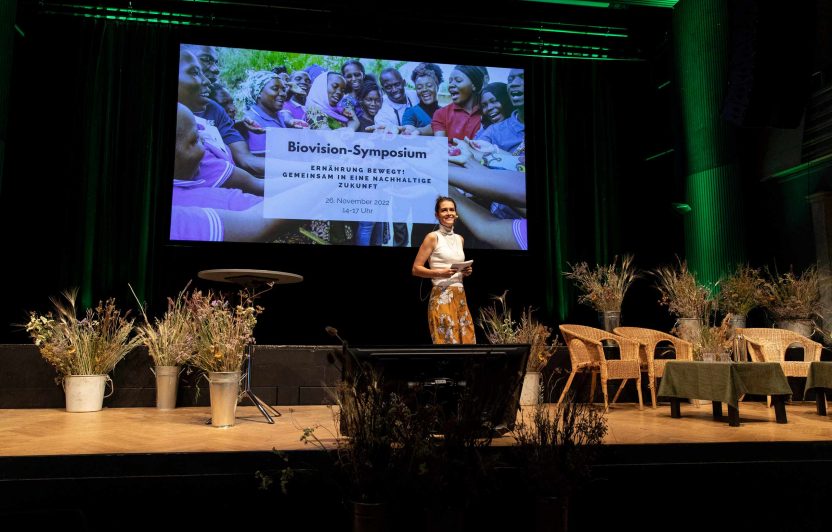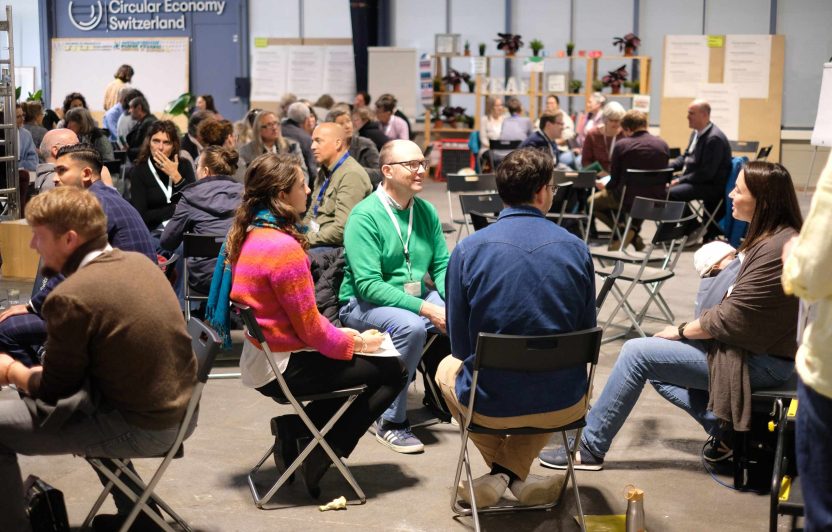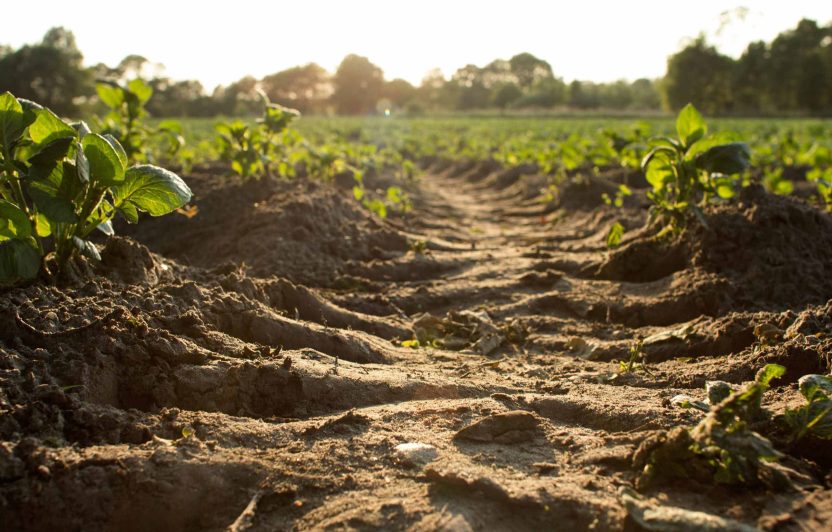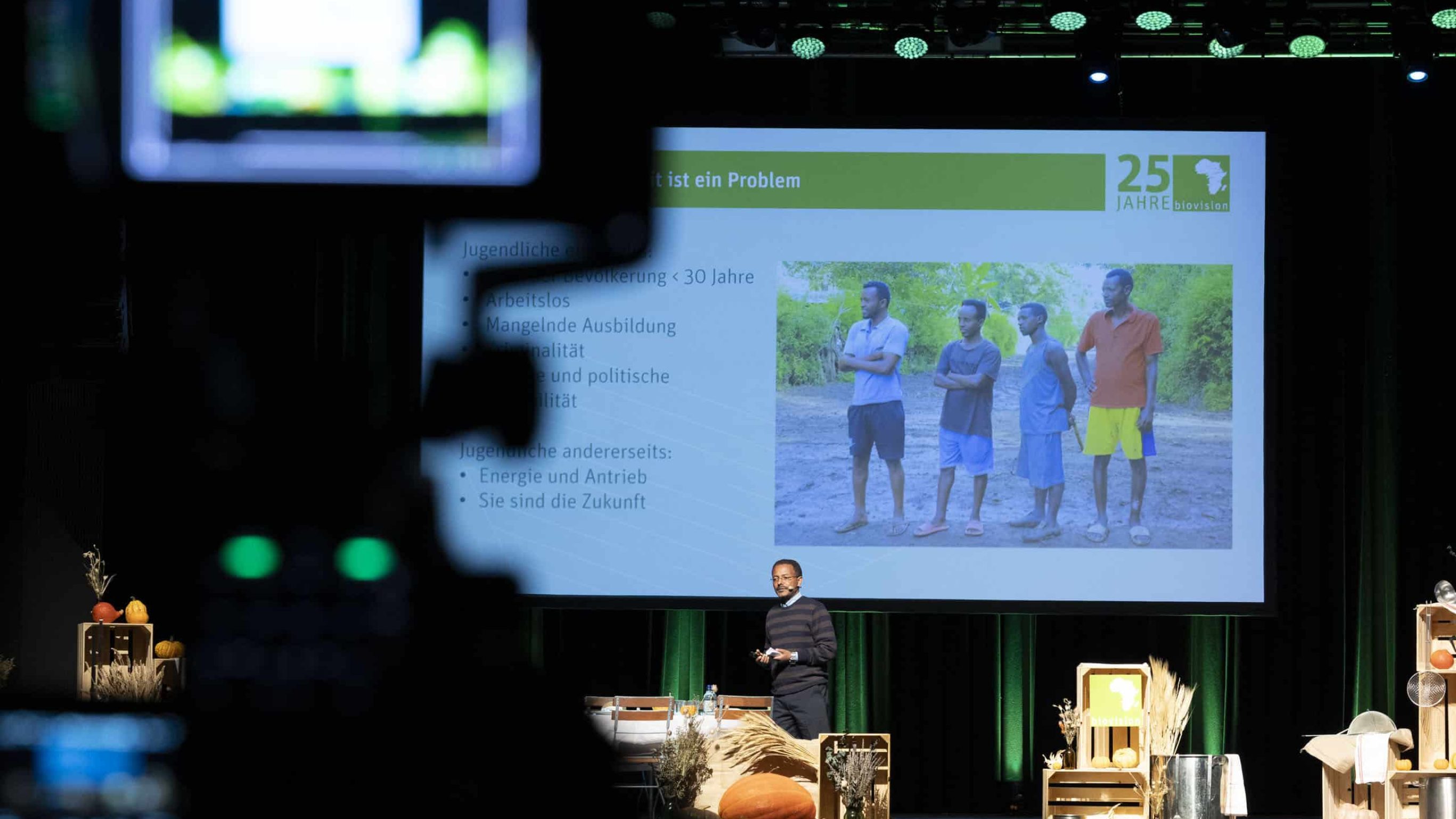


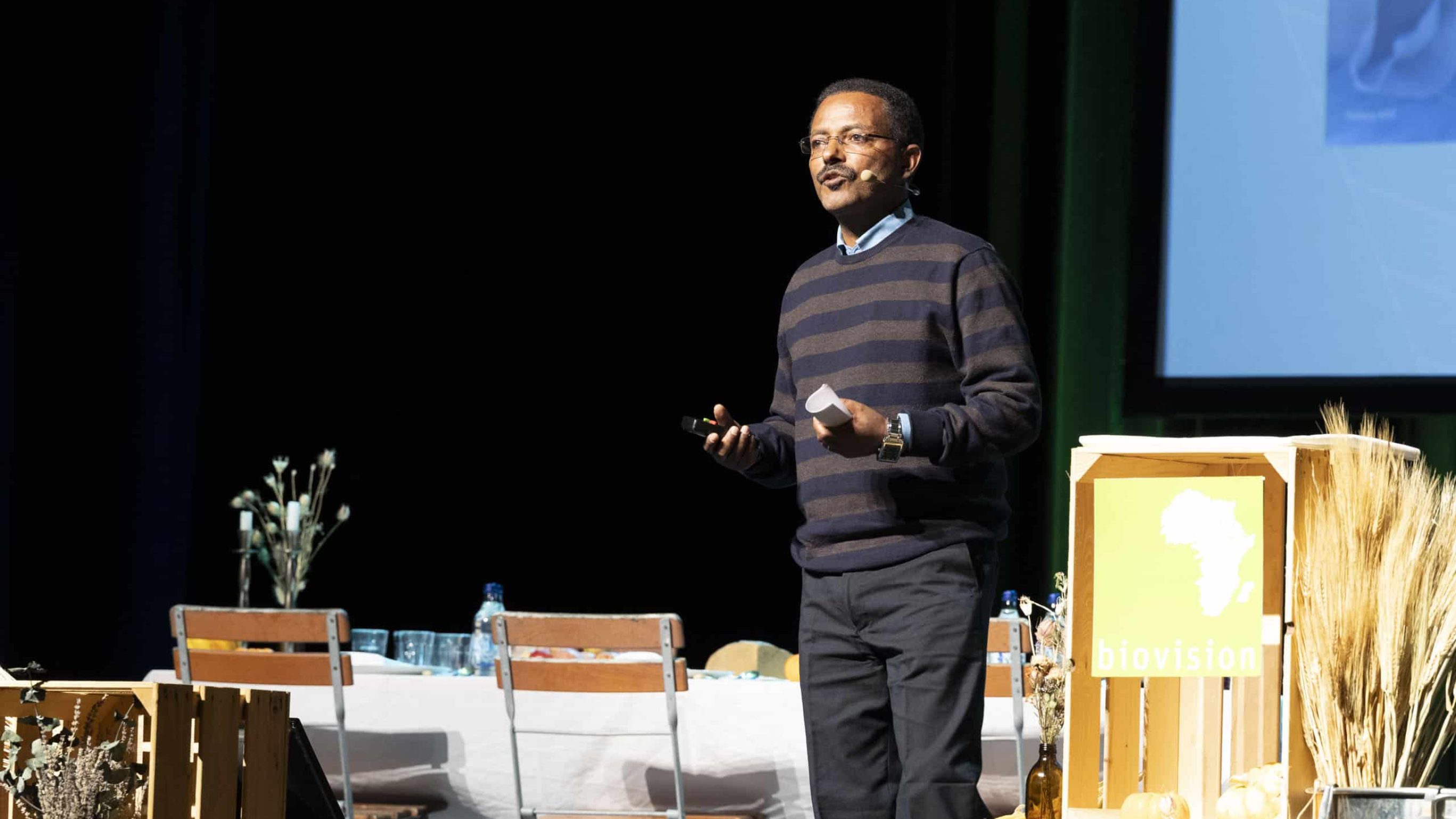
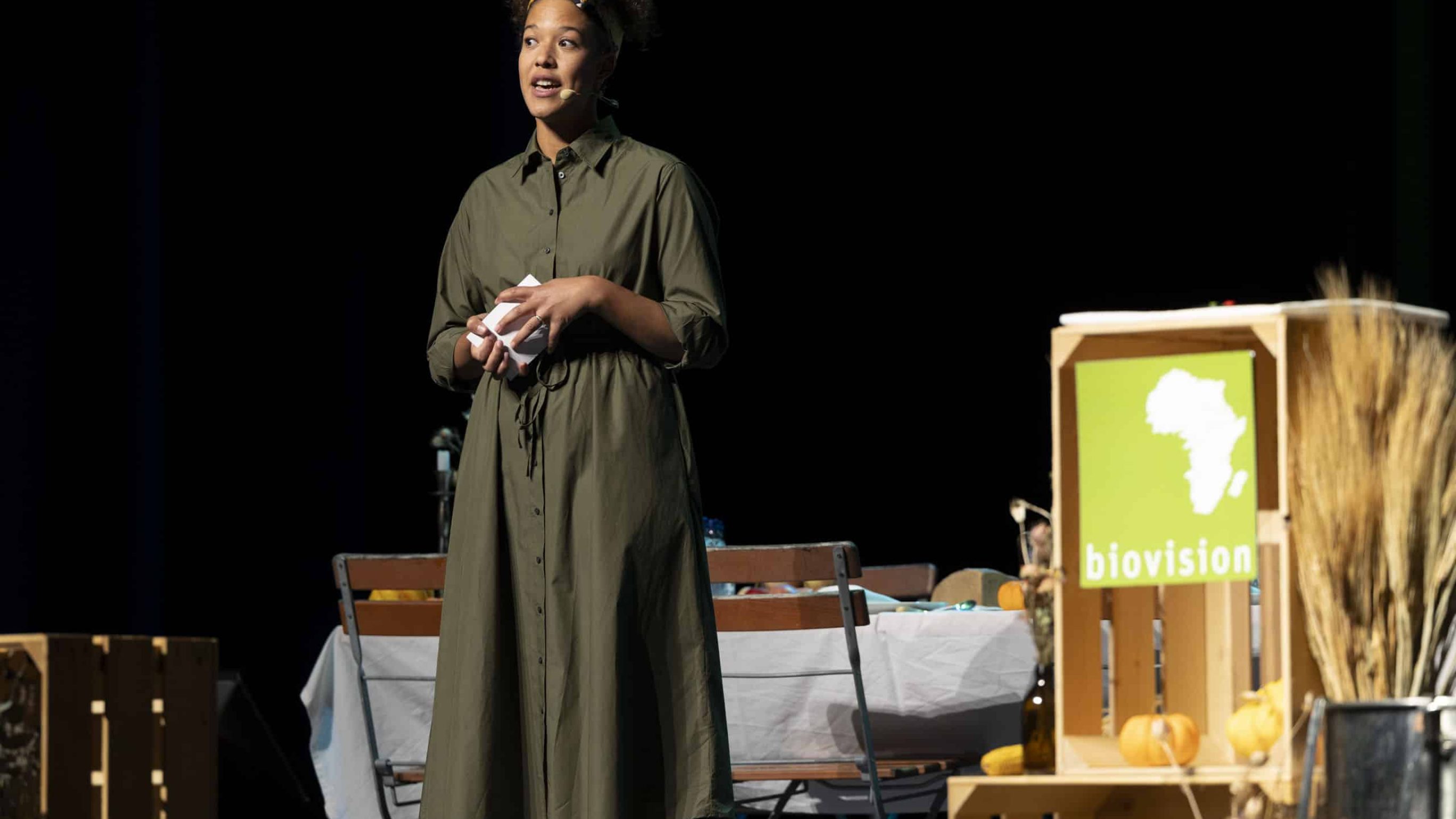
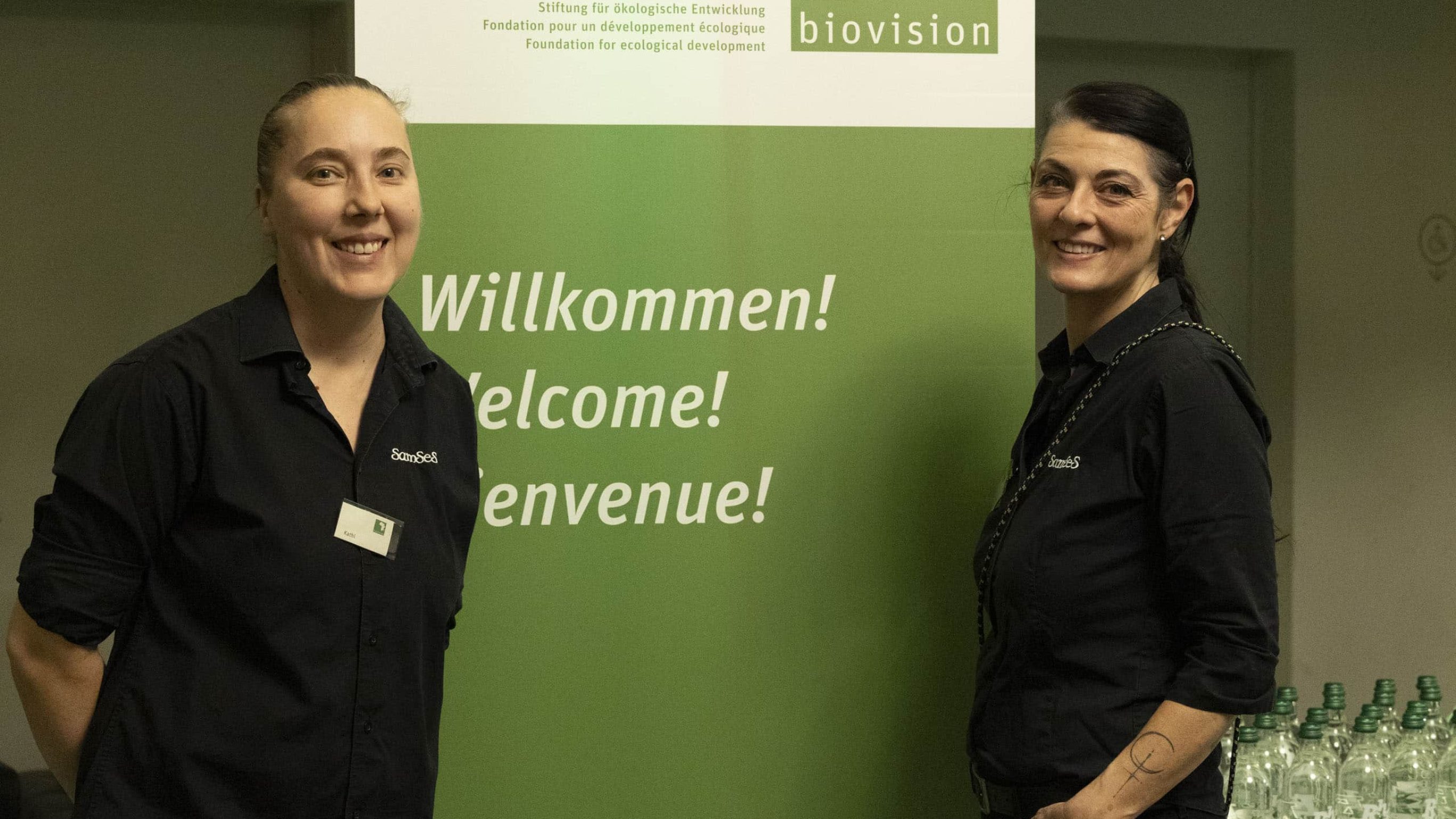


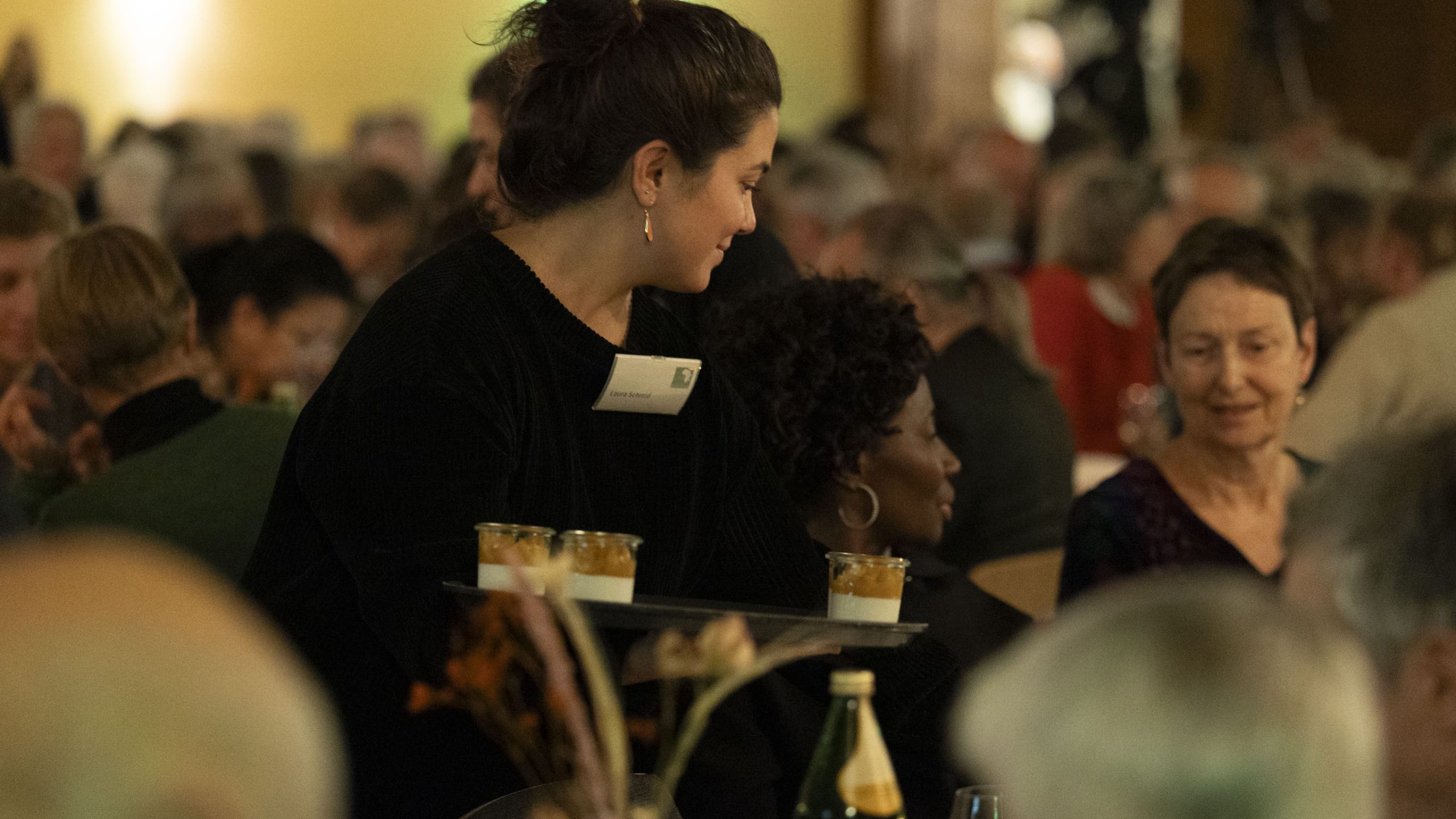
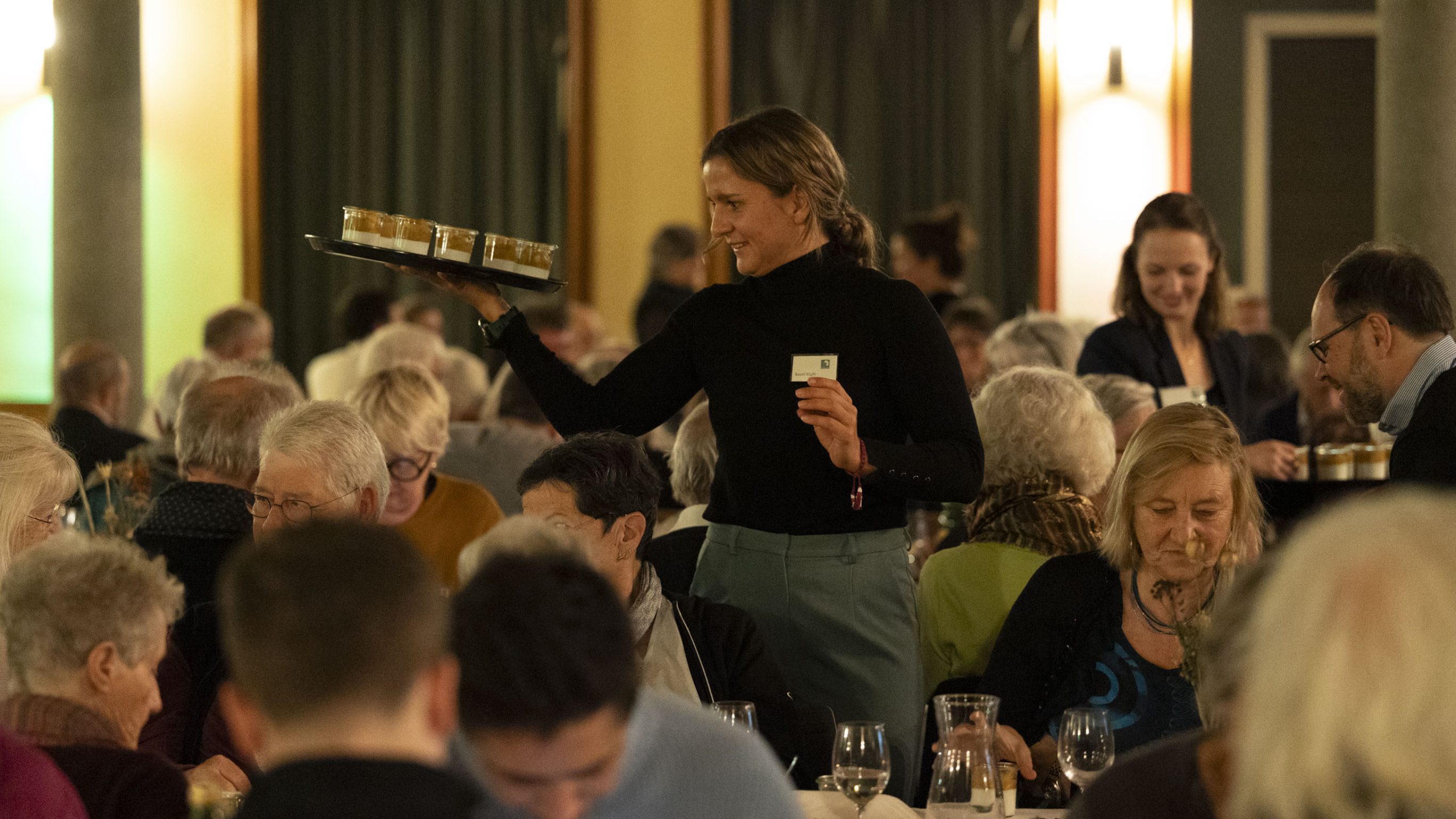




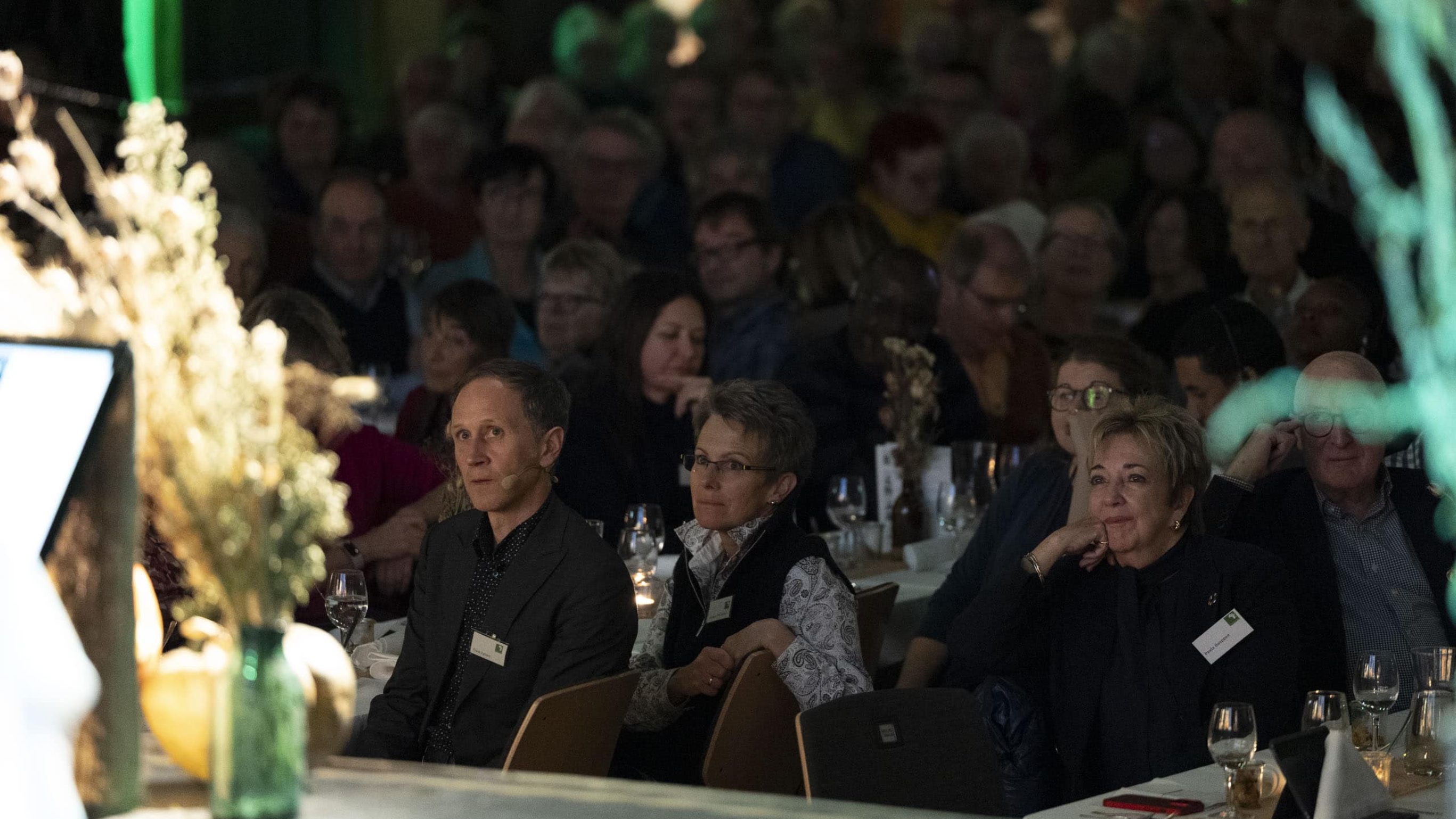


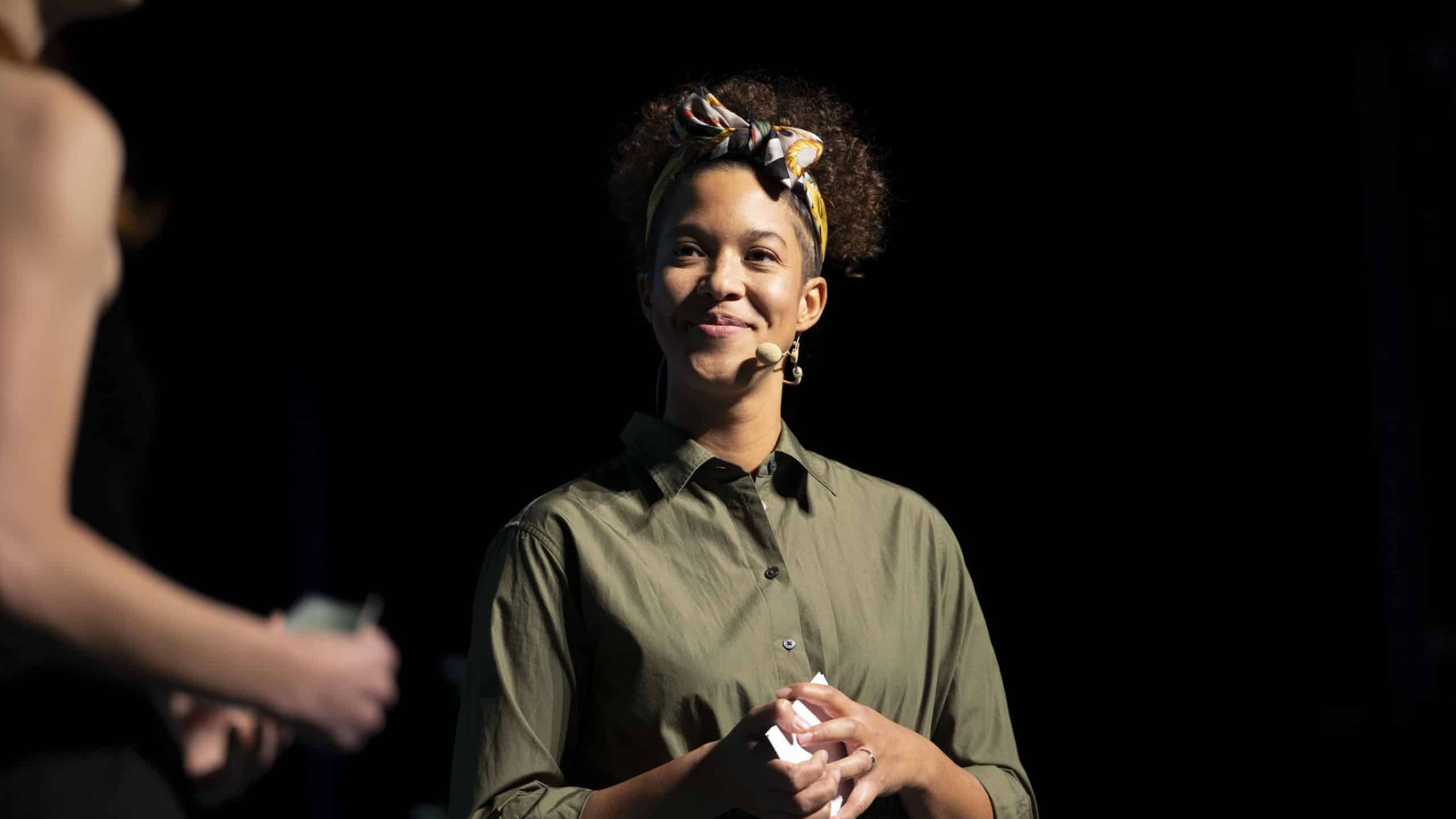
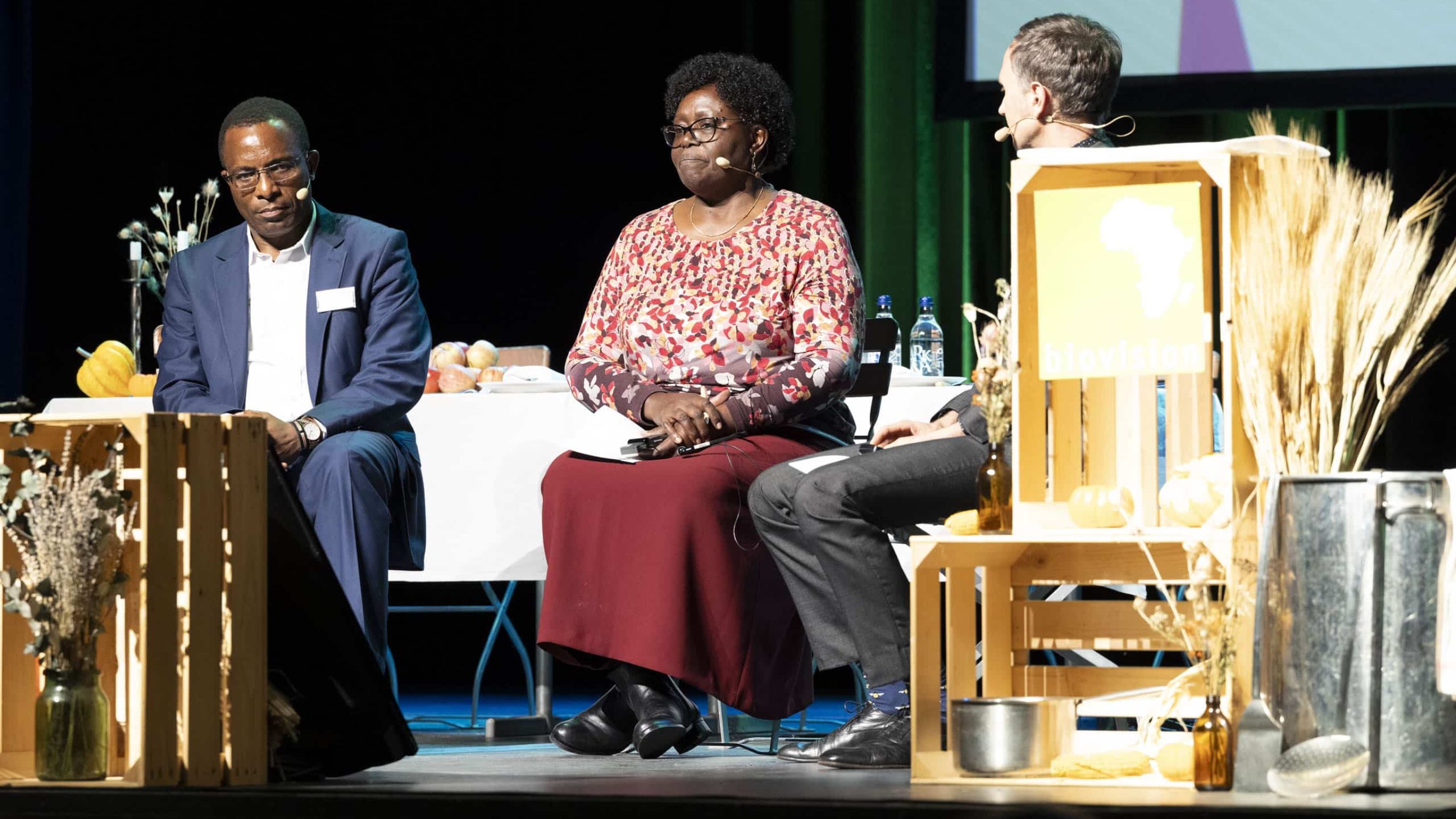

Organic mango cultivation in Ethiopia
The invited guests were able to listen to exciting presentations that showed how and where Biovision is working to change our food systems around the world. In Ethiopia, for example: Here, mango cultivation plays a crucial role in the livelihoods of smallholder farmers. Dr Tadele Tefera, project manager at our partner organization icipe, reported on how our project in Arba Minch not only enables farmers to increase their crop yields, but also sustainably improves the living conditions of the local community.
This is because the fruit is an important source of income for many families. By introducing agroecological methods, farmers have been able to reduce pest infestations and increase their harvests. Particularly impressive is the creation of business opportunities for young people, who act as suppliers and trainers in organic farming.
Historic milestone: East Africa’s first agroecology law
Another success story that we really wanted to tell our guests about is a truly historic event in Kenya: thanks to the initiative of our partner organization Institute for Culture and Ecology, a law was passed in Murang’a that establishes sustainable, comprehensive and fair agriculture as the path to long-term food security.
The adoption of the law was the result of a broad, grassroots movement. The collaboration between farmers, civil society, research and the private sector shows how effective the agroecology approach can be.

Mango cultivation in Ethiopia
Video recording of the symposium part 1
Sustainable nutrition in Switzerland
But it is not only in Africa that Biovision wants to help make food systems more sustainable and fairer, here in Switzerland too. Samira Amos, project manager for our “Food Policy Switzerland” program, emphasized the importance of innovation and diversity in agriculture. She presented impressive examples such as the Naturhof in Bern’s Kiental valley and the Glauser organic farm, which are exemplary of sustainable diets. Initiatives such as Foodoo, which actively combat food waste, show how local solutions can tackle global challenges.
25 years of Biovision
It was then time to look back on the long and extremely successful history of Biovision. How does something come about that now, 25 years later, brings hundreds of people to the Volkshaus in Zurich and moves people around the world? Co-founder and President of the Foundation Board Hans Rudolf Herren reflected on the beginnings and developments of Biovision. He emphasized the need for a comprehensive change of course in agriculture and the political framework.
Success through long-term partnerships
We rightly wanted to give our important partners the stage. After all, the importance of strong, local players in the field of agroecology in Africa is one of the keys to Biovision’s work. With its long-standing partnership with the Biovision Africa Trust (BvAT), Biovision has a key player at its side that is committed to the implementation of agroecological approaches in sub-Saharan Africa – as a knowledge center and important political driver. Its representatives spoke about their working methods and the challenges they face on the ground.
A successful day that gives hope
After exciting presentations, culinary highlights and lots of interesting discussions, we were able to bring Symposium 2023 to a close. What remains is a successful day that showed one thing above all: We are not alone on the path to a more sustainable world. We are part of a strong movement that is moving forward with expertise, willpower and a lot of courage. The next Biovision Symposium is sure to come.

Lighthouse projects (DE)
Video recording of the symposium part 2


